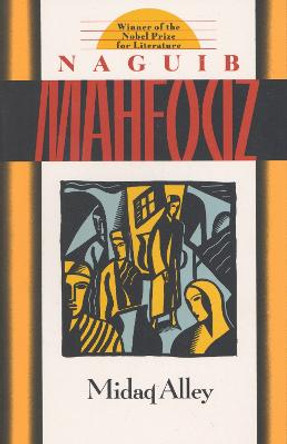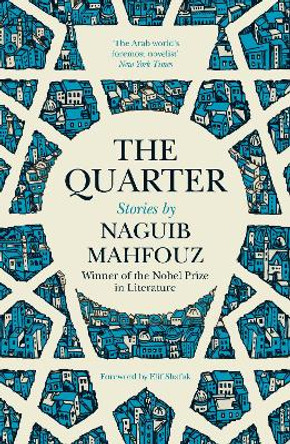Description
An award-winning account of Nobel laureate Naguib Mahfouz's most controversial novel and the fierce debates that it provoked
Naguib Mahfouz's novel Children of the Alley has been in the spotlight since it was first published in Egypt in 1959. It has been at times banned and at others allowed, sold sometimes under the counter and sometimes openly on the street, often pirated and only recently legally reprinted. It has inspired anxiety among the secular authorities, rage within the religious right, and a drawing of battle lines among Arab intellectuals and writers. It dogged Mahfouz like a curse throughout the remainder of his career, led to his attempted assassination, and sparked a public debate that continues to this day, even after the author's death in 2006. It is Egypt's iconic novel, in whose mirror millions have seen themselves, their society, and even the universe, some finding truth, others blasphemy.
In this award-winning account, Mohamed Shoair traces the story of Mahfouz's novel as a cultural and political object, from its first publication to the present via Mahfouz's award of the Nobel prize for literature in 1988 and the attempt on his life in 1994. He presents the arguments that swirled about the novel and the wide cast of Egyptian figures, from state actors to secular intellectuals and Islamists, who took part in them. He also contextualizes the interactions among the principal characters, interactions that have done much to shape the country's present.
Extensively researched and written in a lucid, accessible style, The Story of the Banned Book is both a gripping work of investigative journalism and a window onto some of the fiercest debates around culture and religion to have taken place in Egyptian society over the past half-century.
An award-winning account of Nobel laureate Naguib Mahfouz's most controversial novel and the fierce debates that it provoked
About the Author
Mohamed Shoair is an Egyptian critic and journalist, and managing editor of the literary magazine Akhbar al-adab. Born in 1974, he studied English literature at South Valley University in Qena, Egypt. He is the winner of numerous awards, including the Dubai Prize for Journalism. The Story of the Banned Book won the Sawiris Prize for Literary Criticism and was longlisted for the Sheikh Zayed Book Award. It is his first book to be available in English.
Humphrey Davies (1947-2021) translated some thirty book-length works from Arabic, including The Yacoubian Building by Alaa Al Aswany, and was a two-time winner of the Banipal Prize for Arabic Literary Translation.
Reviews
"The Story of the Banned Book is highly researched investigative journalism at its best. . . . This is a fascinating study of the intricate dynamics of the intersectionality of the political, religious, social, and cultural life in modern Egypt." -Arab Studies Quarterly
"[A] forensic literary investigation. . . . Like any good detective-and Shoair is an exceptional one-he presents the reader with a fluent intellectual thriller, a cross-over book that will interest scholars of Arabic literature and intellectual historians as much as it will delight the general reader for whom it is mostly addressed. . . . The Story of the Banned Book is not only a literary and intellectual achievement, but also a methodological triumph." -Yoav Di-Capua, The Journal of North African Studies
"A thrilling thread on Naguib Mahfouz, literary rivalries, and Egyptian politics as they stood in the mid 20th century, pulled through the needle's eye of the story of a single novel."- M. Lynx Qualey, ArabLit Quarterly
"It is rare that one book documenting the life of another book sheds so much light on the literature, politics, religious feuds, and even cinematic trends of a couple of generations"-Peter Theroux, Middle East Quarterly
"Diving deep into the various interpretations and defenses of Mahfouz's most famous novel . . . Shoair's investigation is a fascinating insight into the lack of literary freedom in Egypt at the time." -Amelia Smith, Middle East Monitor
"Readers invested in the ongoing debates about book banning will find this to be a worthy resource."-Publishers Weekly
"The plot is more compelling than most literature I have read." -Elliott Colla, Georgetown University
"[E]xcellent and thought-provoking"-David Tresilian, Al-Ahram Weekly
"The joy of this book is its evocation of time and place, and the way it seeks out what may be absent or forgotten from the stances of intellectuals. However Shoair does not recount gossip; rather, his concern is verifiable knowledge." -al-Quds al-'Arabi
"A study of literary censorship and of the fight between artistic expression and religious and political authority in Egypt from the 1950s through today."-BULAQ
"Outstanding" -al-Ahram
"Shoair digs into the passion of how this iconic novel was written"-Donia Kamal, author of Cigarette Number Seven
"Shoair's meticulous, forensic account of the fierce controversies and confrontations provoked by the publication and censorship of Mahfouz's notorious novel takes the reader on a page-turning journey through the labyrinth of postcolonial Egypt's fraught and high-stakes cultural politics and offers nuanced critical insight into the author's work. A perfect marriage of literary and cultural history, and investigative journalism, and masterfully translated by Humphrey Davies, this book is essential reading for anyone interested in understanding an entire era of modern Egyptian history and its place in contemporary global politics."-Samah Selim, Rutgers University
Book Information
ISBN 9781649030856
Author Mohamed Shoair
Format Hardback
Page Count 222
Imprint American University in Cairo Press
Publisher American University in Cairo Press








